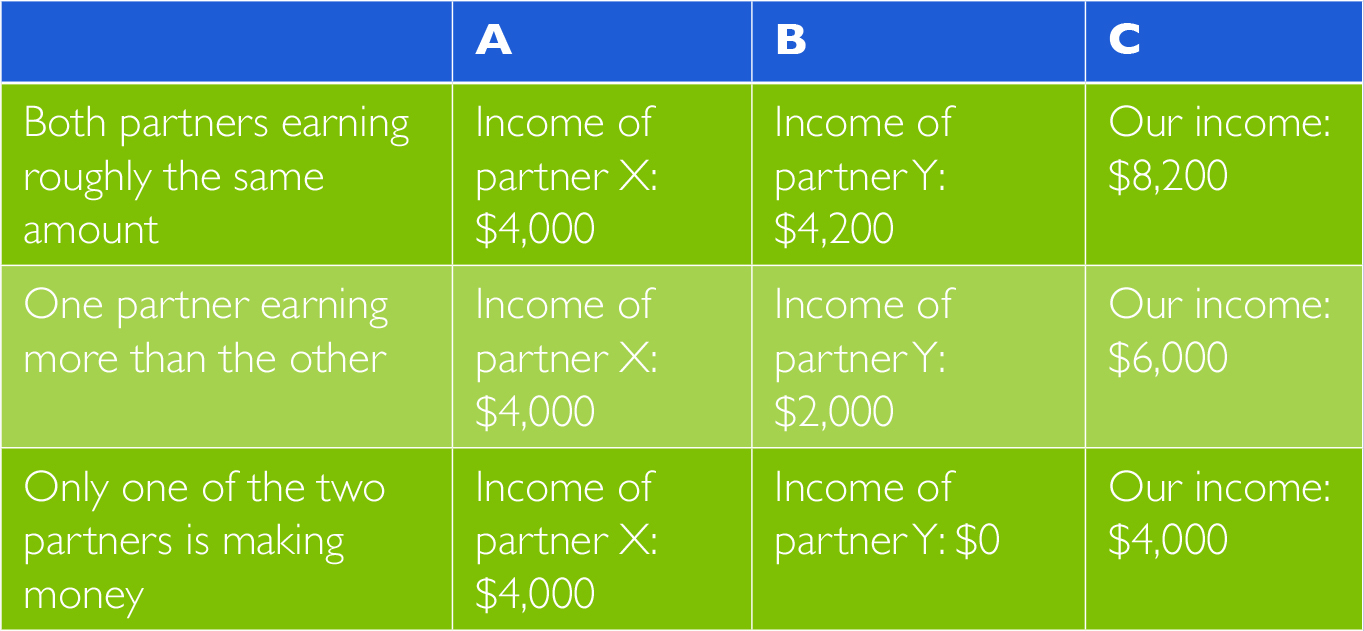The degradation of the marriage relationship in our society is becoming more and more alarming. Studies made to trace the source of failure in marriage have demonstrated that finances are often a major factor. This implies that sound finances are important to a marriage’s success. That’s why communication about anything related to money is essential between marriage partners. A lack of cooperation in this area will lead to a higher probability of marriage failure.
Proverbs 24:3, 4 gives us the principles of communication that should be applied between marriage partners: “Through wisdom a house is built, and by understanding it is established; by knowledge the rooms are filled with all precious and pleasant riches” (NKJV).
These two verses describe the ideal progression that needs to take place in the life of a married couple. This progression is described by these three virtues: wisdom, understanding, and knowledge.
We note here that this progression culminates with the promise of “precious and pleasant riches.” There is here a direct allusion to prosperity, to abundant living, and even to financial peace and stability.
King Solomon’s advice in Proverbs should be applied to all aspects of a marriage relationship. However, it is clear that the three virtues he emphasizes are particularly crucial with regard to financial management. Each virtue has a particular role from which are generated these three principles:
To Build Through Wisdom
Both husband and wife will bring their own way of managing finances to the marriage. Disagreements on this aspect will eventually cause some form of tension. That’s why Solomon’s advice is to act wisely. It is in this phase that good judgment should prevail. Prior to marriage, you may be satisfied with the way that you manage your personal finances. But that does not mean that your previous approach will be optimal within your marriage. Both marriage partners should look individually at the way they manage their finances and the impact they think this will have on their married life. Ideally, this exercise should be done before marriage, during the time of courtship, where the following questions should be asked and answered:
- Am I ready to say that what I am earning is not my money anymore but “our money”?
- Am I ready to say that the debts of my partner will also become my debts?
- Am I ready to reprioritize my expenses based on the needs of the couple rather than on my individual needs or/and wants?
A negative answer to even one of these questions might result in a problematic financial partnership within the marriage. Not only should each partner know their personal stand on this aspect, but they should also know that of their future spouse. That’s why good communication and total financial transparency between the two partners is mandatory, not only during the marriage but essentially prior to marriage.
To Establish by Understanding
The verb “to establish” highlights the notion of permanence and solidity. It is in that phase that the necessity of good communication and total financial transparency between the two partners becomes essential. This is what will lead to good understanding. Both partners need to talk openly about money by being completely transparent and at the same time open-minded. This is the phase when the couple works on the numbers together and comes to an agreement on financial management.
Step 1: Shifting from “my money” to “our money”
Ideally, all incomes should be put into one common basket. This is when the couple talks of “our money” and not of “my money” or “your money.”
There are three scenarios possible:

Whichever scenario you find yourself in, there should be a complete adjustment to the fact that your income is not what is found in Column A or Column B anymore. Note that in none of these three scenarios is there a decrease in the income of the individual. In most cases, there will be an increase as indicated in Column C. The difference is that instead of being the only person managing the money, you will have a partner with you to do that. But this also means that the two partners will be accountable to each other.
Step 2: The peacemaker
The next step is to decide how and where to distribute your income. This is when you will elaborate your monthly budget.
Let’s say that you come up with the following buckets for your budget (see Dynamic Steward, 2nd Quarter 2019):

For the married couple, the budget will now have an additional role that it did not have for them as singles. The budget will now be the peacemaker as long as both partners:
- Elaborate the budget together;
- Totally agree on the way the money will be distributed;
- Commit to following strictly the budget;
- Agree that any major modification should be done by mutual agreement;
- Understand that the budget is always right once agreed upon.
Couples who have been successful in their marriage are those who have applied relationship principles leading to financial harmony. When guidelines are set and boundaries established, they help toward the maintenance of marriage commitment and good communication. It will facilitate the understanding that both partners have equal privileges and responsibilities when it comes to the control of the finances.
To Be Filled With Riches by Knowledge
There must always be a mutual agreement for the decisions taken by married couples. However, couples can agree to make the wrong decisions inadvertently or even sometimes deliberately. Knowledge is the key factor that will help to avoid such situations.
God, through His prophet, says that His “people are destroyed for lack of knowledge” (Hos. 4:6). He wants each and every person to know His Word because as says the psalmist, it “is a lamp for my feet, a light on my path” (Ps. 119:105, NIV). In any aspect of our life, the Word of God should not be neglected; and this is true even when it comes to the management of our financial resources. Turning to the Word of God is showing complete trust in God. This is why in Malachi 3:10 (NKJV), God says: “Bring all the tithes into the storehouse, that there may be food in My house, and try Me now in this . . . if I will not open for you the windows of heaven and pour out for you such blessing that there will not be room enough to receive it.”
God promises financial peace to those who put Him first (see Dynamic Steward, 3rd quarter 2019). But very often, the realization of God’s promise is hampered by a lack of good financial behaviors, which can be the result of a lack of knowledge. Couples who are longing for a successful marriage must seek financial knowledge with the aim of becoming financially literate in order to have a good understanding in the following areas:
a. Creating and following a budget and the importance of saving (see Dynamic Steward, 1st and 2nd quarters 2019).
b. The correct use of credit cards and understanding interest rates (see Dynamic Steward, 3rd quarter 2019).
c. Getting out of debt.
d. Investing and saving for retirement.
Knowledge of the Word of God and His promises should motivate us to gain knowledge of financial principles, both before and during the marriage. Solomon could not put it any clearer when he says that “by knowledge the rooms are filled with all precious and pleasant riches.”

